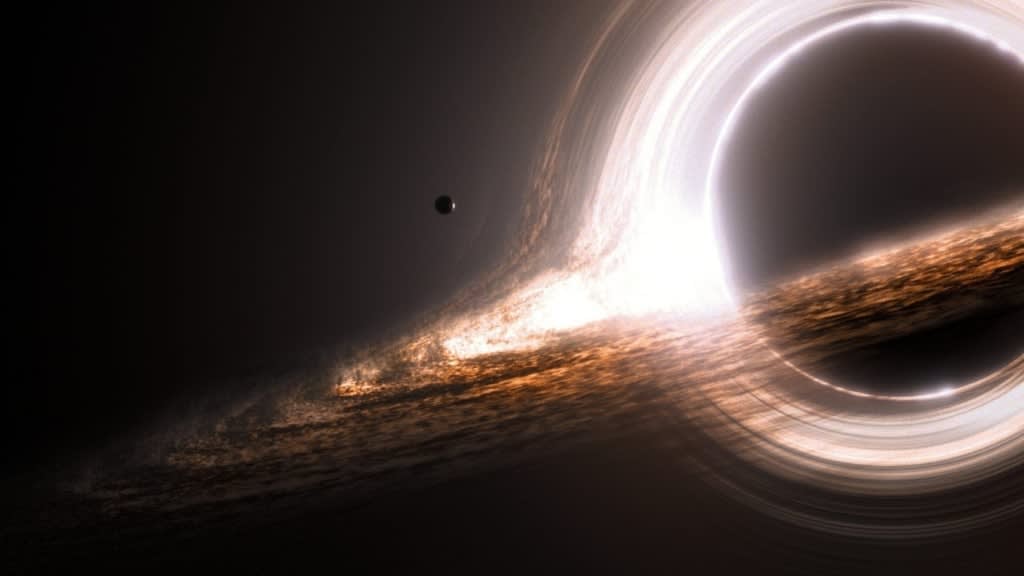Black Hole Explained
"Unveiling the Cosmic Enigma: A Comprehensive Guide to Understanding Black Holes"

Black holes are mysterious entities. They defy logic and understanding. Their origins and the consequences of entering them are puzzling questions. Stars are gigantic collections of mostly hydrogen atoms. These atoms collapse due to their own gravity, resulting in enormous pressure. Nuclear fusion occurs in the core, converting hydrogen into helium and producing an immense amount of energy. This energy, released as radiation, counteracts the force of gravity, creating a delicate equilibrium.
Stars with more mass than our sun have a stable core thanks to fusion. As these stars fuse heavier elements, they eventually reach iron. Unlike previous elements, iron fusion does not produce energy. Iron accumulates in the star's core until it reaches a critical mass, causing a sudden disruption in the balance between radiation and gravity.
The star collapses. It implodes within a fraction of a second. The speed at which it moves feeds more mass into the core. This moment creates all the heavier elements in the universe. It happens as the star dies in a super nova explosion. This explosion produces a neutron star or a black hole. Looking at a black hole means seeing the event horizon. Crossing the event horizon requires traveling faster than the speed of light, which is impossible. Therefore, we only see a black sphere reflecting nothing. But what is the "hole" part of the black hole if the event horizon is the black part?
The uniqueness. We are unsure of its precise nature. A singularity could have infinite density, indicating that all of its mass is concentrated at one location in space, lacking a surface and volume, Maybe something entirely different. We simply don't know right now. It resembles a "dividing by zero" mistake. To clarify, black holes don't collect objects like a vacuum cleaner does .If we replaced the sun with a black hole that was just as huge, For Earth, not much would change. except, of course, that we would freeze to death. In the event that you went into a black hole, what would happen?
Time is experienced differently around black holes. externally, As you get closer to the event horizon, you appear to slow down. hence for you, time moves more slowly. You might seem to freeze in time at one point. gradually turn scarlet, then vanish .However, from your point of view, The rest of the universe can be viewed in fast forward. Imagine being able to look into the future .We are currently unsure of what will happen next. However we believe there are two possible causes: One, you pass away quickly.
Space is curved so much by a black hole, that as soon as the event horizon is crossed, There's only going to be one way. This is something you can consider to be within the event horizon. There is only one direction you can go It feels like every step you take is like a narrow alley closing behind you. A black hole's mass is so concentrated that it Even little distances of a few millimeters eventually would imply that certain bodily sections are subject to millions of times greater force from gravity. Your cells are ripped apart. As your body continues to expand, Until you turn into a fiery plasma stream, one atom wide.
Two, you pass away quite quickly. Not long after you've passed the point of no return, You would instantly be terminated if you struck a firewall. These are not really enjoyable options. The mass of the black hole determines how quickly you would perish. You would be destroyed by a smaller black hole before you could reach its event horizon .although you could definitely spend a significant amount of time traveling inside a supersized, enormous black hole. Generally speaking, The more remote you are from the singularity, the longer your life span.
Black holes are sized differently. Black holes with stellar mass exist. Several times the mass of the sun, and an asteroid's diameter. Furthermore, there exist really enormous black holes. which are situated at each galaxy's center, and have spent billions of years feeding. As of this now, the biggest known super huge black hole, S5 0014+81 is the number.40 billion times the mass of our sun. Its diameter is 236.7 billion kilometers. It is 47 times Pluto's distance from the sun. Given the strength of black holes, They will ultimately vanish due to a phenomenon known as Hawking radiation.
To comprehend how this operates ,We must gaze upon emptiness. Actually, unoccupied space is not empty. but teeming with virtual particles that appear out of now here and destroying one another once more. When this occurs directly at a black hole's edge, The black hole will attract one of the virtual particles. and the other will break free to materialize as a particle. Thus, energy is being lost by the black hole. At first, this happens quite slowly .and increases in speed as the black hole shrinks. As it reaches the mass of a sizable asteroid, is radiating at ambient temperature. When it possesses a mountain's weight, It emits heat equivalent to that of our sun. and at the final moments of its existence, In a massive explosion, the black hole emits radiation with the energy of billions of nuclear bombs.
However, this process is extremely slow. The largest black holes that are currently known to exist could take up to a googol year to evaporate. Because of this, no one will be there to watch the final black hole to radiate away; the universe will have become inhospitable long before then.
About the Creator
Jorge Eloi Mendoza
Embark on a journey into a realm of limitless knowledge and captivating insights! Let my words be your guide through a world where curiosity knows no bounds. Explore, learn, and discover the wonders that await.





Comments
There are no comments for this story
Be the first to respond and start the conversation.